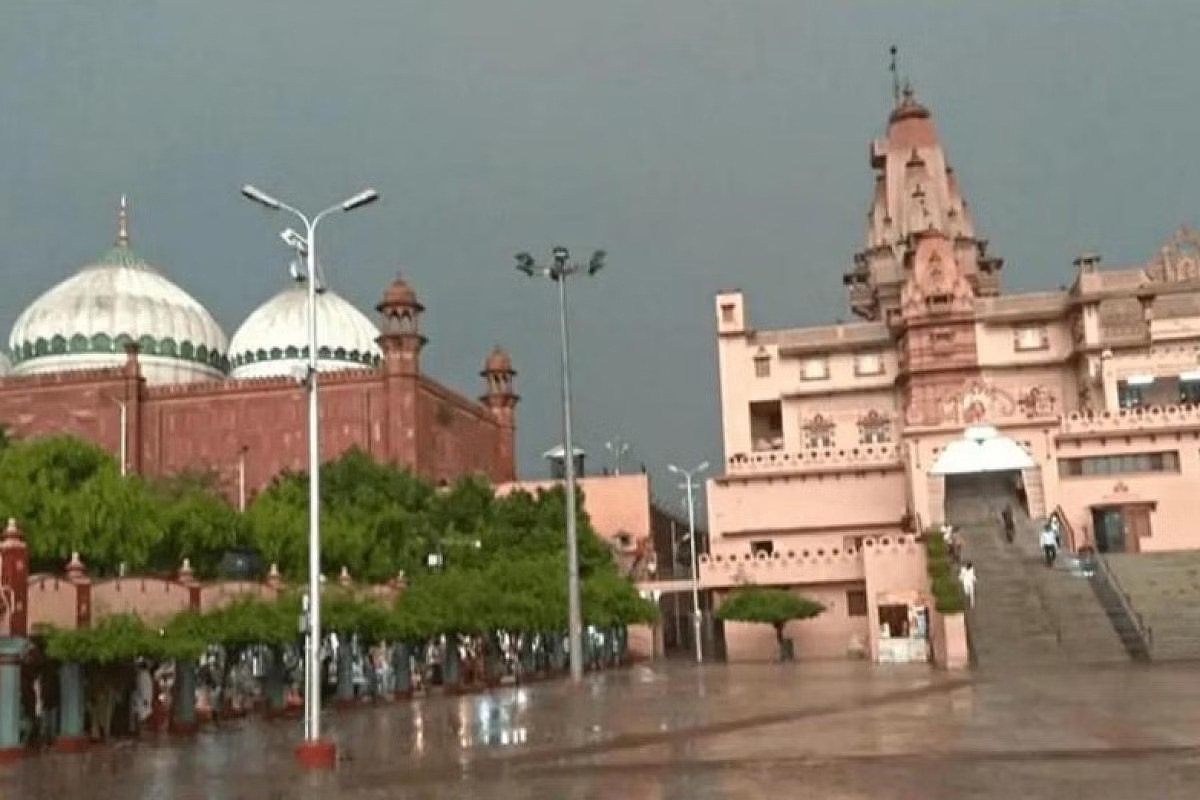New Delhi: The Allahabad High Court has asked the Mathura district judge to hear the Shahi Idgah-Krishna janmabhoomi dispute afresh. The dispute arose after a plea was filed in the lower court in 2020 to remove the Shahi Idgah mosque from the complex it shares with the Katra Keshav Dev Temple.
The petitioners claimed that the mosque was constructed on a part of 13.37-acre land belonging to the Sri Krishna Janmabhoomi Trust and demanded that it be removed and the land returned to the Trust. However, the civil judge senior division rejected the suit on September 30, 2020, as non-admissible.
The high court has now remitted the entire matter back to the Mathura district judge, lifting the stay on the case and deciding to hear all sides afresh.
Srikrishna Virajman had earlier petitioned the district judge for a review of the civil court’s decision to dismiss the civil complaint. The Idgah Trust Committee and the Sunni Central Waqf Board contested the district judge’s ruling in the high court.
The court had earlier stayed the order for an official survey of the disputed Shahi Idgah structure after a plea was filed by Hindu Sena president Vishnu Gupta for the survey. The stay on the survey was issued after Advocates Tanveer Ahmed and Neeraj Sharma, appearing for the Shahi Idgah, filed a petition against the plea filed by the Hindu Sena president.
The dispute has been ongoing for several years, with the initial agreement between the mosque trust and temple administration in 1973 allocating land to both parties. However, a new petition to contest the 1973 decision was submitted on behalf of the deity in 2016. The civil court (senior division) declined to register the matter as a civil complaint on September 25, 2020, on the grounds that some of the claimants from the Hindu side did not reside in Mathura, where the disputed property is located.
In May of last year, the Mathura district judge overturned the civil judge’s directive and declared that the case could be heard. The judge made thorough findings on each issue, declaring that the trial court had made unlawful and apparent mistakes. The Muslim side then filed a petition with the HC to challenge this ruling, claiming that it was against the Places of Worship (Special Provisions) Act of 1991.










